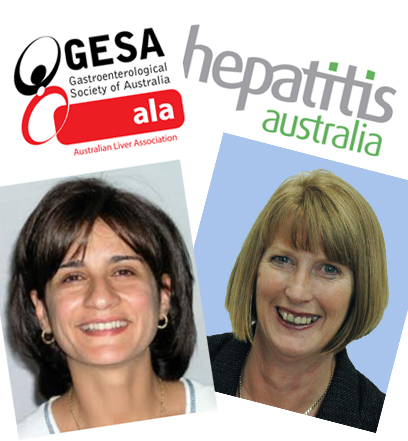The Federal Government's billion dollar investment in new hepatitis C medicines must be supported by a concerted effort to raise public awareness of the ground-breaking treatments, experts say.
Hepatitis Australia CEO Helen Tyrrell said experts are concerned that many of the 230,5000 Australians living with hepatitis C are still completely unaware of the new treatments or the enormous benefits they offer.
“The Federal Government is to be congratulated on making breakthrough hepatitis C medicines available. Now the focus must be on increasing hepatitis C treatment rates to ensure this investment saves and transforms lives," Ms Tyrell said.
“People aged over forty may not have symptoms of liver disease, but if they are not engaged in hepatitis C care they remain at high risk of silently progressing to cirrhosis, liver cancer and liver failure. It is vital that the message goes out loud and clear that there has never been a better time to treat and cure hepatitis C.
“We urge all people who know they are living with hepatitis C to seek a liver check-up and discuss their treatment options with their doctor.”
The Gastroenterological Society of Australia Australian Liver Association (GESA ALA) Chair, Associate Professor Amany Zekry said it is vital that healthcare professionals – including general practitioners – are proactive and offer people living with the hepatitis C virus a liver check-up to assess liver damage and discuss treatment options.
“People who think they have been exposed to the hepatitis C virus at any stage in their life are encouraged to get tested. The new medications are simple and effective with high cure rates,” Dr Zekry said.
For the first time, general practitioners will be able to prescribe new hepatitis C medicines, in consultation with a specialist experienced in the treatment of hepatitis C.
To assist with the introduction of new treatments, a consensus statement has been developed by hepatitis C experts to guide GPs through patient assessment such as the extent of underlying liver disease, hepatitis C genotype, co-mordities and treatment history.
Treatment regimens vary depending on these factors. Dr Zekry said the greater involvement of GPs in hepatitis C treatment signals a significant opportunity to scale up treatment in the community and make it easier for many people living with hepatitis C to be treated by their local GP. Those with advanced liver disease will continue to be managed in specialist liver clinics.
“The increasing involvement of general practice in hepatitis C treatment is a huge step forward. It will increase treatment capacity and make the treatment journey quicker and smoother for patients.
“Ultimately, we will be able to cure more people – which will pay huge dividends in halting the hepatitis C epidemic and forcing rates of serious liver disease into decline,” Dr Zekry said.



